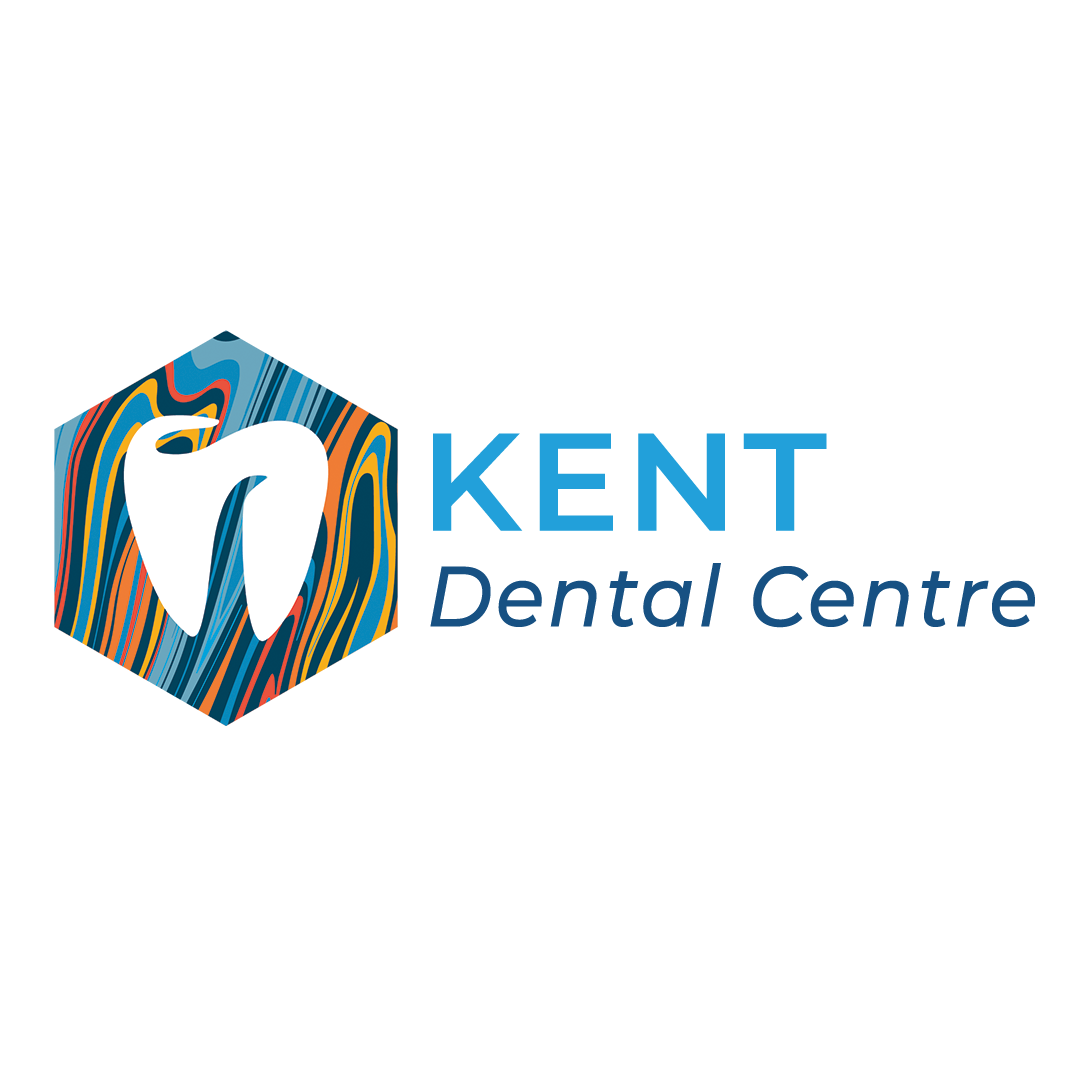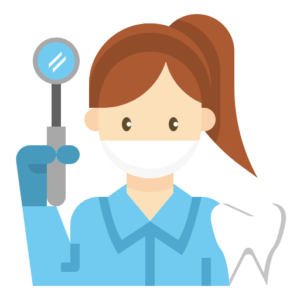Call Us - (+90) 850 305 3113
What is Sedation?
Sedation therapy is a dental treatment method that reduces anxiety or discomfort related to dental procedures and makes dental treatments more comfortable.
Before the sedation treatment, sometimes oral drugs and sometimes anesthetic drugs are given by injection to make the patient go into a semi-sleep state.
What are the types of Sedation?
Conscious Sedation: is the type of sedation in which patients respond to verbal commands, their breathing is not affected and they do not experience complete loss of consciousness.
Moderate Sedation: is a type of sedation in which patients can respond to light touches or loud commands.
Deep Sedation: is a type of sedation that does not respond to any stimulus and the patient is in a deep sleep state.
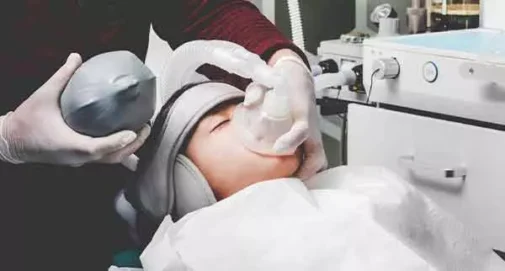

Should I Use Sedation During My Treatment?
In order to prevent the fear of the dentist, which is more common especially in children, they should be introduced to a pediatric dentist from a young age, and they should be informed that this is a natural procedure and that people of all ages are examined. Dentophobia (fear of the dentist) will not occur in children who come to the pediatric dentist regularly from the moment they are born. Unfortunately, dental phobias can deter patients from seeking professional treatment. Delayed treatments may lead to larger procedures and high-cost situations in the future. In such cases, sedation provides great comfort for the patient. Even if you do not have any dental phobia, you can have a very comfortable treatment process with the convenience of sedation.
In Which Patients Can Sedation Be Applied?
Sedation application;
- Generally, in people who are anxious and have dentist phobia,
- People with nausea, vomiting and gag reflex,
- Children, adult, mental retardation, can be easily applied to all our patients.
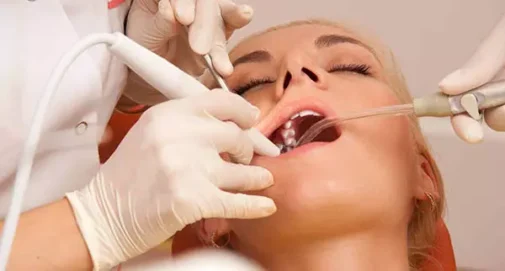
What are the Advantages of Sedation?
Dental treatment with sedation provides many advantages.
As the anxiety of the patients is eliminated, it increases the comfort and ensures that the treatment times are comfortable.
- More than one treatment can be applied in the same session.
- With the rapid effect (within 2-3 minutes), patients are provided to feel more comfortable.
- Patients can continue their daily routines without worrying about any side effects.
- After sedation, the feeling of numbness in the mouth that will disturb the person will pass.
- The level of sedation can be increased or decreased at any time.
- The patient remains fully conscious and calm during the treatment.
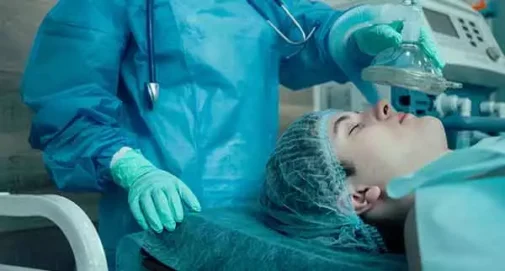
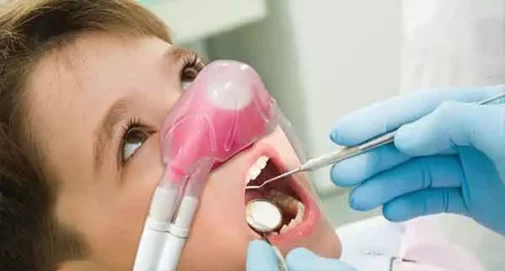
What Are the Risks of Sedation?
The reflex that the person loses most easily in case of relaxation and sleepiness is the airway reflex. Therefore, the concern in sedation is the airway and respiratory system of the patients, which is carefully controlled and carefully observed. During the treatment, patients’ blood pressure, respiratory functions, heart rates and other vital signs are meticulously monitored.
After sedation, fatigue, nausea, vomiting, headache, mild sleepiness or disorientation can last up to 3 hours after waking up. None of these conditions are signs of concern, they are findings that are considered normal after sedation.
What Should Be Considered Before Sedation?
There are certain important topics that should be considered before sedation.
- The patient should stop consuming solid foods at least 6 hours before and liquid consumptions 4 hours before sedation.
- Patients who have a habit of smoking should not consume cigarettes after the fasting hour before sedation.
- The necessity of sedation and its complications should be explained to the patients and their relatives, and written and verbal consent forms should be signed.
- Patients who will be treated with sedation are requested to come to our clinic with a companion and to bring spare clothes with them.

Sedation Application in Pediatric Dentistry
Sedation can be applied to any person who is eligible as a result of health checks. The details of the sedation treatment can be easily transferred to the adult individual. However, since this transfer is not possible in infants and children, it is of great importance that the infant or child be relieved before sedation.
As soon as children sit in the dentist’s chair, a friendly member of our clinical team places a small mask on our patient’s nose. The flow of oxygen and anesthetic gas is adjusted and our patient begins to calm down within minutes. The gas is easily inhaled with normal breathing and is rapidly excreted from the body. It is also not addictive.
When the effects are fully visible, our specialist dentists begin the treatment of our patient.
In Which Situations Is Sedation Not Applied?
As with any treatment, there are some cases where sedation treatment cannot be applied.
- In patients who do not comply with the 6-hour fasting period,
- In patients with severe lung and heart disease,
- In patients with respiratory distress,
- In patients with a history of respiratory arrest during sleep,
- Sedation treatment is not preferred in patients with cold, fever, ear infection or stuffy nose.
In temporary cases of the above-mentioned conditions (hunger condition, cold, fever…), sedation planning is re-established by contacting the clinic.

Sedation at Kent Dental Centre
As Kent Dental Centre, we offer our patients the opportunity to be treated under general anesthesia and sedation in our 3 different operating rooms equipped with state-of-the-art anesthesia devices and equipment. For detailed information about the differences between sedation and general anesthesia, please click here.
All your sedation treatment planning is meticulously created under the control of our specialist physicians and assistants, and your post-sedation condition is carefully monitored.
Especially in the field of Pedodontics – Pediatric Dentistry, sedation treatment is frequently preferred and every sedation procedure is successfully completed.
Sedation is a method that eliminates the anxiety and discomfort for dental procedures and provides a more comfortable dental treatment.
If you are experiencing dental anxiety for any reason, you can complete your dental treatment more comfortably with sedation. As a result of your examination performed under the control of a specialist physician, the most appropriate treatment planning and sedation procedure will be determined.
People with dental phobia and psychological/physiological findings (nausea, vomiting, etc.) may prefer sedation to have dental treatment more comfortably and without stress. The age group does not constitute an obstacle to sedation treatment.
Since the patient is relieved before the treatment with sedation, they do not feel anxiety during the treatment. Many planned treatments can be successfully completed in the same session. Since there will be no restrictive effect on daily life after sedation, the person can continue their daily activities from where they left off.
It is extremely normal to see one or more of the symptoms such as weakness, nausea, vomiting, headache, light sleep and disorientation that can be seen after sedation at the same time. Although it is almost never encountered, it is recommended to contact the physician in an unexpected situation.
Before sedation, your child should stop consuming solid food at least 6 hours before and liquid consumption 4 hours before. It has been observed that in such cases, our pediatric patients usually keep chocolate-like snacks in their rooms and consume them before sedation. Therefore, it is important that you pay attention to this issue as well. Appointed sedation will unfortunately be delayed in cases where your child is consuming food and drink.
As Kent Clinic, we can perform general anesthesia and sedation procedures in our Ümitköy center in our 3 fully equipped operating rooms where our state-of-the-art anesthesia device and equipment are located. Our specialist physicians and assistants keep your condition meticulously under control, down to the smallest detail, during the entire sedation procedure.
Sedation is not preferred in patients with severe lung and heart disease and respiratory distress. Dental treatment is carried out under the coordination of a doctor and dentist. Apart from this, the appointment is postponed to a future date in case of temporary situations or discomfort (not complying with the fasting period, fever, cold, vomiting, etc.).
